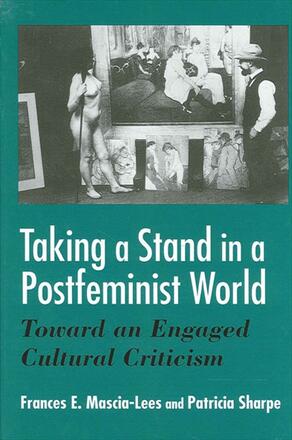
Taking a Stand in a Postfeminist World
Toward an Engaged Cultural Criticism
Alternative formats available from:
Ranging across contemporary culture from the academy to shopping malls, this book offers engaged cultural criticism in a postfeminist context.
Description
Taking a Stand in a Postfeminist World offers an engaged cultural criticism in a postfeminist context. At the end of the twentieth century, an increasingly globalized world has given rise to a cultural complexity characterized by a rapid increase in competing discourses, fragmented subjectivities, and irreconcilable claims over cultural representation and who has the right to speak for, or about, "others." While feminism has traditionally been a potent site for debates over questions that have arisen out of this context, recently, it has become so splintered and suspect that its insights are often dismissed as predictable, seriously reducing its capacity to offer powerful cultural criticism. In this postfeminist context, the authors argue for a cultural criticism that is strategic, not programmatic, and that preserves the multiple commitments, ideas, and positions required of interactions and identifications across lines of cultural, racial, and gender difference. Selecting sites where such interactions are highlighted and under current scrutiny—film, consumer culture, tourism, anthropology, and the academy—the authors theorize and demonstrate the struggles and maneuvers required to "take a stand" on a wide range of issues of significance to the contemporary cultural moment.
Professor Frances E. Mascia-Lees teaches anthropology at Sarah Lawrence College, and is the author of Toward a Model of Women's Status and coauthor of Gender and Anthropology. Patricia Sharpe is Dean of Academic Affairs at Simon's Rock College of Bard, and along with Frances E. Mascia-Lees, coedited Tattoo, Torture, Mutilation, and Adornment: The Denaturalization of the Body in Culture and Text, also published by SUNY Press.
Reviews
"Mascia-Lees and Sharpe are keen observers of contemporary culture, scholars who cull evidence carefully to reach their conclusions. What's more, they combine careful scholarship with representational inventiveness. They take creative risks with voice, structure, and subject. I'm sure their various takes on the post-feminist world will please many, anger some, and stimulate all." — Paul Stoller, author of Jaguar: A Story of Africans in America